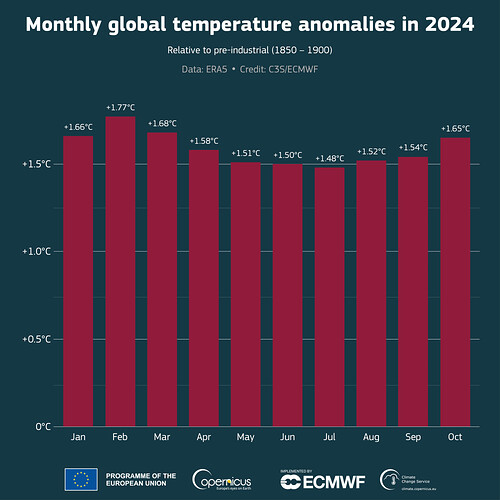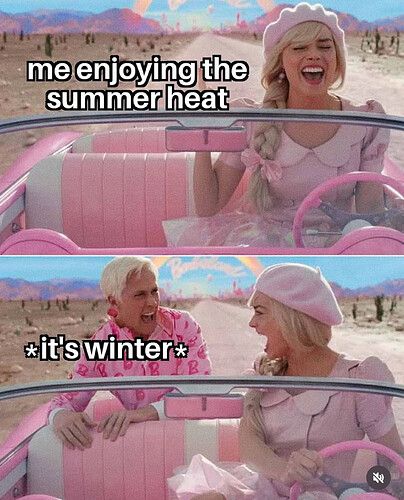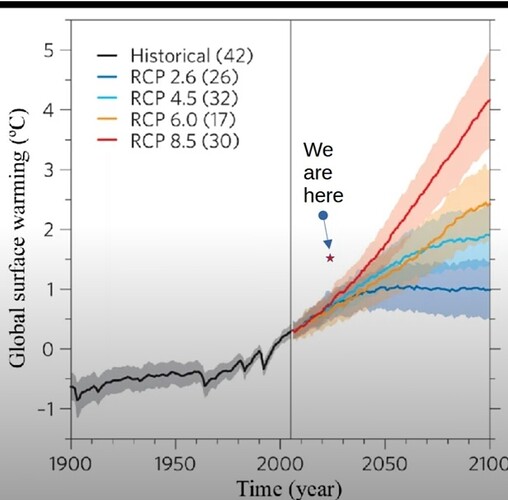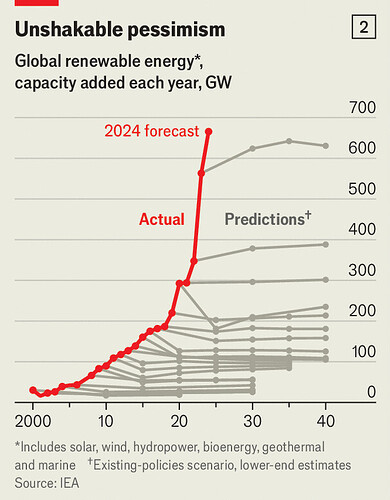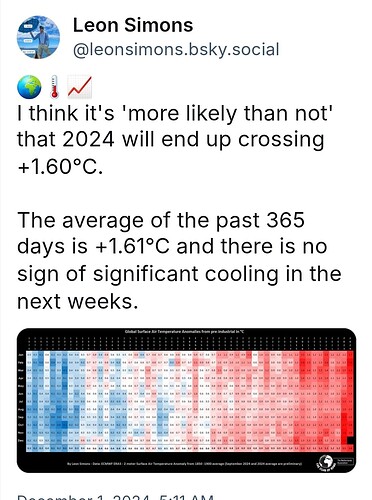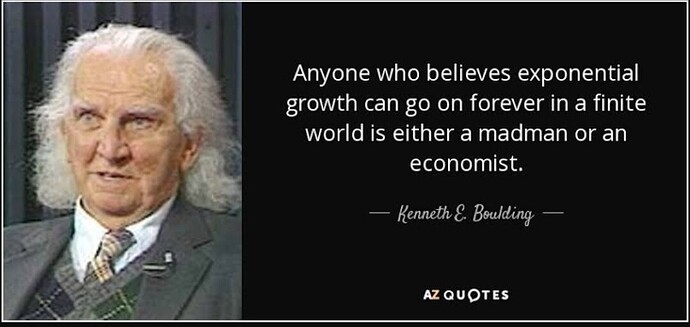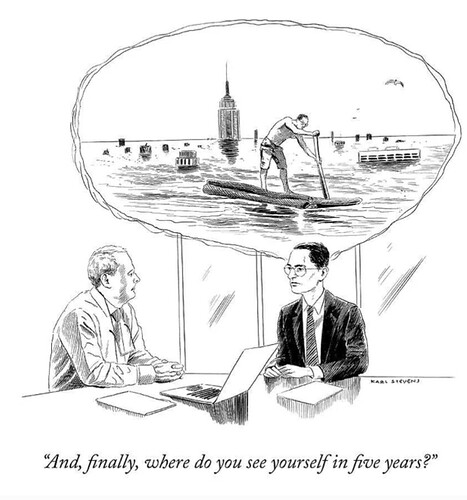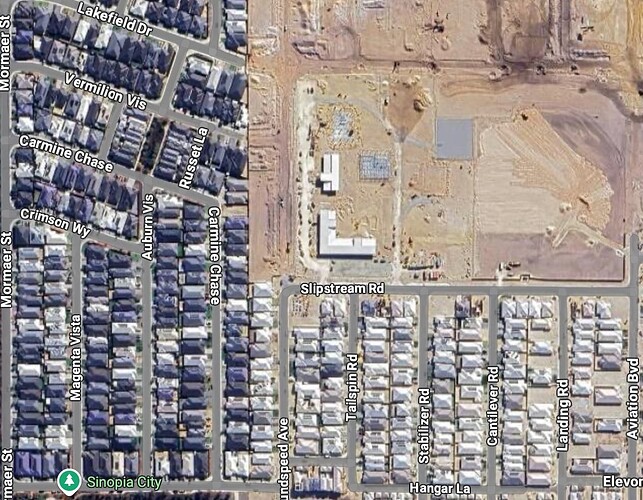It’s almost comedic at this point.
I had a mate who worked there in an executive role. Left leaning.
They said that when Albanese won it was almost like a funeral.
Time to buy land in Tassie, the new Bali
From the economist:
Interesting comment: there are fewer than two dozen ships outside China capable of installing an offshore wind farm. All of them, unsurprisingly, are booked up for years in advance.
Economic modellers also have a poor record of predicting technological advances. They overestimate the take-up of some technologies (such as carbon capture and storage, whereby carbon dioxide is sucked out of the smokestacks of power stations and factories and stashed away safely underground) and severely underestimate the falling costs of others, most notably solar panels and lithium batteries. Rupert Way of the University of Cambridge and others have modelled an energy system in which the cost of solar power, wind power, lithium batteries and hydrogen electrolysers falls according to “Wright’s law”. This holds that every doubling of production sees unit costs fall by a fixed percentage, with that percentage derived from past experience. In this scenario emissions fall so rapidly that even the 1.5°C target can be met at minimal cost.
In practice bottlenecks always form in fast-growing industries, impeding the spread of new technologies despite falling costs. As cheap as solar power has become, for instance, securing grid connections for it remains a slow process in many countries. By the same token, there are fewer than two dozen ships outside China capable of installing an offshore wind farm. All of them, unsurprisingly, are booked up for years in advance. Modellers try to reflect these obstacles by placing arbitrary limits on how quickly the cost of new technologies can fall. But they have tended to apply these brakes too heavily, especially for renewable power. The IEA’s predictions of renewable generation capacity have repeatedly fallen wildly short over the past decade.
This is just embarrassing. This is what happens when a corporate bootlicker masquerading as a journalist is presented with facts.
oh ■■■■ me, that was excruciating. It was like the pretty mean girl at high school trying to flay the science nerd but she had none of her mates backing her up and he did her like a dinner. That guy kept his cool so well. Watching it made me speechless with rage, after I’d run out of swear words. ■■■■ these people so much and ■■■■ any idiot who watches Sky and Fox and reckons they’re legit. You f@#kwits, you collaborators.
She was absolutely useless.
That’s what you get when your position is built on factual quicksand and you don’t have an Andrew Bolt level of rudeness to cut off the message that you don’t want to hear.
Interesting article. Some similarities with William Nordhaus with regards to the cost of climate action and similar levels of bullshit. Economists should almost always be ignored, especially in this space.
Jeepers. Australia has come a long way on solar, now the AEMO want the ability to shut off your solar panels. Should this be the case in future, solar panels without the accompanying battery probably wont make much sense anymore.
This is what will happen nationally with a nuclear scheme
I wouldn’t get too concerned about that. Residential solar is a real complication to the energy grid, currently AEMO curtails commercial solar but doesn’t have any levers over residential when there’s too much power being generated. This would be a break glass in case of emergency thing and one that I don’t expect to get implemented.
Batteries will suck up all this energy in the coming years.
When our carbon sinks become positive feedback loops, you know we’re screwed. Good luck eveyone. We are speed running to 2⁰C and beyond.
will be worse when it releases methane.
Flying back to Perth, I could smell smoke. Luckily it was not from the plane but from a bushfire - smoke haze was all round the horizon up to 20,000 feet.
Getting closer, over the Swan Valley instead of seeing the vineyards the area is famous for:
We get this:
Very environmentally friendly.
And a lazy 42oC today in Perth suburbs.
Yeah, they can leave Margaret River alone.
